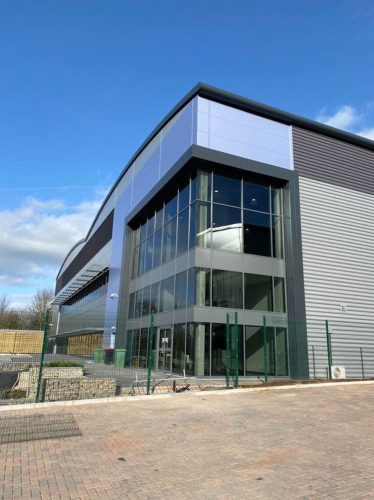The cell and gene therapy CDMO bottleneck isn’t capacity – it’s capability
Posted: 6 June 2023 | Angela Osborne | No comments yet
CDMOs have been squeezed by the sharp increase in companies preparing to scale their cell and gene therapy manufacturing for Phase III trials and commercialisation, and physical capacity has been a common scapegoat. But eXmoor CEO Angela Osborne says the real limiting factor is experience.


Manufacturing any new type of product requires a degree of process reinvention, but the unique demands of advanced therapies have presented challenges not seen in biopharmaceuticals since the early days of monoclonal antibodies. While the rapid growth of the field is pushing many players toward new efficiency, the industry remains quite a distance away from standardisation. Small/medium enterprises (SMEs) in particular need to partner with contract development and manufacturing organisations (CDMOs) in order to leverage both manufacturing capabilities and knowhow in order to scale quickly.


Credit: eXmoor Pharma
With the drumbeat of announcements about new manufacturing players and substantial investments for capital expansions, one can be forgiven for missing the purveying sentiment we have heard from SMEs: they are unhappy with their CDMOs. The primary issue is not lack of clean room square footage, it is the lack of experienced hands.
For one, the rapid growth in demand has meant that even industry leaders with experienced leadership must regularly rely on largely inexperienced staff. The complexities of cell and gene therapy manufacturing mean it can take a year or more to fully train new staff, and the demands of the job contribute to high turnover – an even bigger issue in biotech hubs where staff can jump to new positions with relative ease. We have heard frequent accounts of these conditions leading to insufficient training, resulting in basic mistakes and other unforced errors.
Inexperience is not just a problem on the clean room floor, either. Because most developers are new companies in a new space, they rely on their CDMO partners to offer guidance. For example, one common problem is that inexperienced SMEs underestimate the time to scale-up and can easily find themselves overextended. As a service provider, the worst thing you can do is move too fast too soon. An experienced CDMO can help them set the right pace and check all the right boxes in their process development before scaling up towards the clinic.
Since the space is so young, many SMEs are looking for partners with a particular area of expertise, such as a preferred vector or cell type. While the developer may bring certain assays or a novel part of the manufacturing process, most recognise they do not have all the pieces. Therefore, they are not looking to entirely outsource or insource manufacturing, but instead, find the right fit somewhere in between.
But even after finding a partner with the right expertise, recent industry turmoil has meant that small, specialised companies are regularly bought out by larger companies, and clients can find themselves shuffled to the bottom of the priority ladder.
Choosing the right CDMO partner
the most successful CDMOs – and the best to work with – are the ones who maintain relationships by addressing issues openly and quickly”
Clearly, much can go wrong with the wrong partner, but the right one can be crucial to enabling everyone’s goals – getting new medicines to patients in need.
The industry is insular enough that reputations tend to precede CDMOs. For small companies, it may only take a single error to lead to the type of disaster that can ruin their reputation. Larger ones may be able to insulate themselves a little better, but from our standpoint, the most successful CDMOs – and the best to work with – are the ones who maintain relationships by addressing issues openly and quickly.
SMEs often struggle to get the same kind of focus that big players demand from their service providers. This makes it even more vital to work with a CDMO for whom their business is important. When a CDMO is appropriately focused on their product, it shows: the partner will engage very early with them to help develop a chemistry, manufacturing and controls (CMC) strategy, and focus heavily on process development.
These capabilities are critical in a CDMO, but unfortunately, many only pay lip service to development – they are looking instead to pivotal clinical trial manufacturing, where repeat batches mean big money. For CMC in particular, it quickly becomes clear when a company is going through the process for the first time because they will not have an established path forward.
[developers] can also gauge how well a CDMO understands them by the kinds of questions asked in return”
Conversely, it is apparent when a CDMO has this experience. They want to show you they know the pathway forward, and that they can execute on it. Developers should ask directly about their experience of course, but can also gauge how well a CDMO understands them by the kinds of questions asked in return.
The right CDMO will have experience for the entire manufacturing process. That means a team who can scale process development backwards from commercial process through Phase I and meet the SME where they are, with an understanding of the business procedure along the way. Additionally, there will be a strong multidisciplinary team of technicians and operators with the experience to function in a GMP environment to meet regulatory standards for quality, without mistakes. Having only half the capabilities is not enough.
In cell therapy manufacturing, the strongest teams will have a certain percentage of highly experienced leaders, coupled with strong recruitment and mentorship programmes to develop the next generation of talent”
While it can be difficult to evaluate staff at a CDMO, one subtle consideration is location. Companies located in busy hubs often compete more fiercely for talent, and in a rapidly growing space like advanced therapies, that can lead to overpromotion and title inflation. Regardless, when a CDMO has strong universities nearby and access to public apprenticeship programmes, it is a good sign that they are positioned for a stable talent pool.
Given the talent crunch, it is more than fair to ask about a partner’s company culture. In cell therapy manufacturing, the strongest teams will have a certain percentage of highly experienced leaders, coupled with strong recruitment and mentorship programmes to develop the next generation of talent.
Building the trust
Part of the capacity growth we see in the industry is in part from SMEs going down build or buy routes to insource manufacturing, due to not trusting the partnership options. This is rarely the right solution, as the entire industry suffers as a result. CDMOs in this space have a way to go, and not just in terms of building the right expertise to meet the needs of the companies developing cutting-edge cell and gene therapy technologies. The onus is on us to be more straightforward in describing our expertise without overselling.
SMEs should be prepared to look closely at potential CDMO partners – evaluate their reputations, ask about the breadth of their experience, scrutinise their responses to ensure they are focused on understanding your needs, and consider whether they have the right culture to help you succeed.
About the Author


Angela Osborne, PhD is CEO of eXmoor, a cell and gene therapy consultancy and CDMO. She has over 30 years’ experience in biopharmaceutical and cell and gene therapy businesses, processes and facilities. Dr Osborne works closely with clients to guide and support them through new product expansion projects, starting from the strategic business review, ensuring the early definition of technical requirements is focused on the business benefits and that the final solution delivers these benefits.
Related topics
Big Pharma, Biopharmaceuticals, Contract Manufacturing, Industry Insight, Manufacturing, Outsourcing, Research & Development (R&D), Technology, Therapeutics
Related organisations
Related drugs
advanced therapy medicinal products (ATMP), cell therapy, Gene therapy








